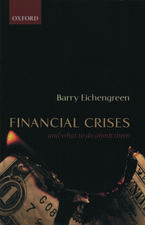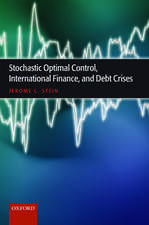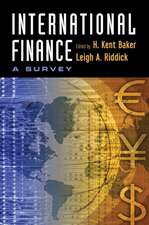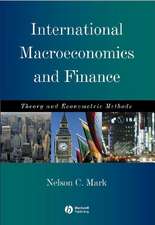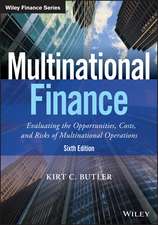The Financial System Under Stress: An Architecture for the New World Economy
Autor Marc Uzanen Limba Engleză Hardback – 11 iul 1996
* an analysis of the role of the Bretton Woods institutions and their relations with the newly created World Trade Organizations
* a discussion of the search for world economic governance
* an analysis of the crisis within EMS and the prospects for European Monetary Integration
* an examination of the integration of private markets in the new economic architecture.
Preț: 892.16 lei
Preț vechi: 1088.00 lei
-18% Nou
Puncte Express: 1338
Preț estimativ în valută:
170.77€ • 185.56$ • 143.54£
170.77€ • 185.56$ • 143.54£
Carte tipărită la comandă
Livrare economică 21 aprilie-05 mai
Preluare comenzi: 021 569.72.76
Specificații
ISBN-13: 9780415135160
ISBN-10: 0415135168
Pagini: 240
Ilustrații: 35 tables
Dimensiuni: 156 x 234 x 14 mm
Greutate: 0.48 kg
Ediția:New.
Editura: Taylor & Francis
Colecția Routledge
Locul publicării:Oxford, United Kingdom
ISBN-10: 0415135168
Pagini: 240
Ilustrații: 35 tables
Dimensiuni: 156 x 234 x 14 mm
Greutate: 0.48 kg
Ediția:New.
Editura: Taylor & Francis
Colecția Routledge
Locul publicării:Oxford, United Kingdom
Public țintă
PostgraduateCuprins
Introduction THE WORLD ECONOMY AT THE TURN OF THE CENTURY: The search for a new paradigm 1944—95 1 THE REALLY NEW BRETTON WOODS 2 THE INTERNATIONAL MONETARY FUND AND THE INTERNATIONAL MONETARY ORDER SINCE 1945: An historical perspective 3 INTERNATIONAL CHAPTER 11 AND SDR 4 REGIONALISM VERSUS GLOBALISM? Globalism via regionalism! 5 GLOBAL ECONOMIC INTEGRATION AFTER THE COLD WAR 6 DOLLAR AND YEN: The problem of financial adjustment between the United States and Japan 7 MONETARY UNION IN SOUTHERN AFRICA 8 CREDIBLE ROADS TO EMU 9 EXCHANGE RATES IN SEARCH OF FUNDAMENTAL VARIABLES
Descriere
The financial system is largely governed by institutions established by the Bretton Woods Commitee in 1944. Here, the authors propose a new system of international economic institutions to fit the changes in international relations.


